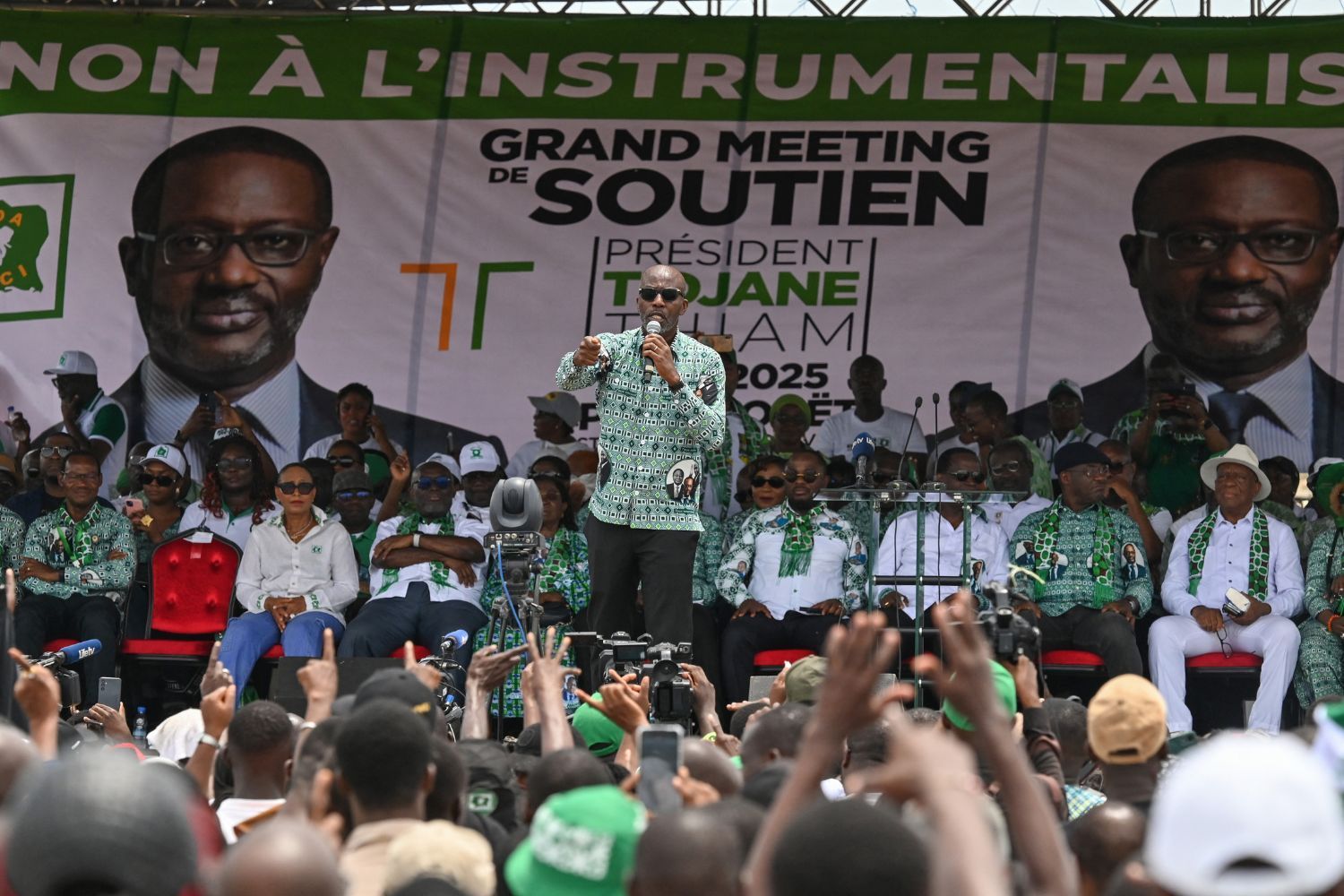Ivorian Opposition Leader Tidjane Thiam Resigns from Presidential Election Bid Amidst Dual Nationality Ruling
Thiam is the latest candidate to be barred from running in this year’s election, perhaps clearing the way for an easy fourth term win for President Alassane Ouattara.
Ivorian opposition leader Tidjane Thiam has resigned as the leader of the Democratic Party of Ivory Coast (PDCI), after being barred from running in this year's presidential elections. Thiam, who has led PDCI since 2023 and was chosen as the party's candidate last month, said he has "decided to place my mandate as president of the party in your hands, the activists," effectively stepping down from the race.
Shortly after his candidacy became official, a court ruled that Thiam was ineligible because he had forfeited his Ivorian nationality when he acquired French citizenship in 1987. Although Thiam surrendered his French citizenship in February, the judge ruled it was too late for him to be eligible as a candidate in this year's election.
Initially, Thiam vowed to fight the ruling, insisting that he was born Ivorian and that this was a way for the ruling party to remove another formidable opponent. A political rally disputing his barring happened in Abidjan earlier this month.
"What's happened is that they dug out a 1961 law that has never been applied to anybody," he told the BBC. "But in theory, it says that if you take another nationality, you lose your Ivorian citizenship," adding that the last AFCON title Côte d'Ivoire won should be surrendered to Nigeria since a significant number of players in the national team were not born in the country.
The Ivorian constitution doesn't allow candidates with dual nationality to contest elections, except when they were born to parents from other countries. Thiam took up French citizenship while he lived and studied in France in the 1980s. He was a top government official in the 1990s until he exited the country due to a military coup and went on to have an illustrious international banking career, until his return to the West African country in 2022.
Thiam's exclusion further weakens the field for opposition candidates. However, he's promised to help his party fight for victory in the presidential election. As it stands, the incumbent president is the overwhelming favorite to win the election, but it is still uncertain whether President Alassane Ouattara will run for a fourth term or whether the ruling Rally of Houphouëtists for Democracy and Peace (RHDP) will present a new successor.
Côte d'Ivoire's Independent Electoral Commission (IEC) has excluded former president Laurent Gbagbo and former youth minister Charles Blé Goudé from the provisional electoral list for this year's presidential election, scheduled for late October.
The IEC cited both men's initial convictions related to the 2010-2011 post-election crisis as grounds for their exclusion. The crisis began when Gbagbo, running for reelection in 2010 against current presidentAlassane Ouattara, refused to concede defeat after the IEC declared Ouattara the winner.
Despite international pressure and observers confirming the election as free and fair, Gbagbo held a swearing-in ceremony after the Constitutional Council reviewed the result in his favor. This sparked deadly conflict between forces loyal to Gbagbo and those supporting Ouattara.
In April 2011, UN and French troops helped depose Gbagbo. Both he and Blé Goudé faced charges at the International Criminal Court for crimes against humanity but were ultimately acquitted due to insufficient evidence. Gbagbo received a 20-year sentence for looting the Central Bank of West African States.
Although President Ouattara later pardoned Gbagbo, this conviction reportedly forms the basis for his exclusion from the provisional electoral list. Gbagbo was the first major figure to announce his candidacy; he held a rally last year, declaring his innocence and commitment to improving living conditions for Ivorians.
The Youth and People's Congress (COJEP), Blé Goudé's party, and the opposition Popular African Congress for the Ivorian People have criticized these exclusions. COJEP spokesperson Me Serge Ouraga said, "It's not just a candidacy that is being blocked, it's the people's right to freely choose their leaders that is being confiscated. An election that excludes is an election that divides, and a divided election is a threat to peace."
A 15-day dispute period will begin on March 22, allowing for reviews of omitted registrations, voter removals, and other concerns. The final electoral list will be released in June.
- ivory coast - OkayAfrica ›
- elections - OkayAfrica ›
- Former Ivorian President and Minister Provisionally Excluded from Election ›
- Ivory Coast President Alassane Ouattara Controversially Wins Third Presidential Term ›
- The African Power Players Named in Paradise Papers Leaks ›
